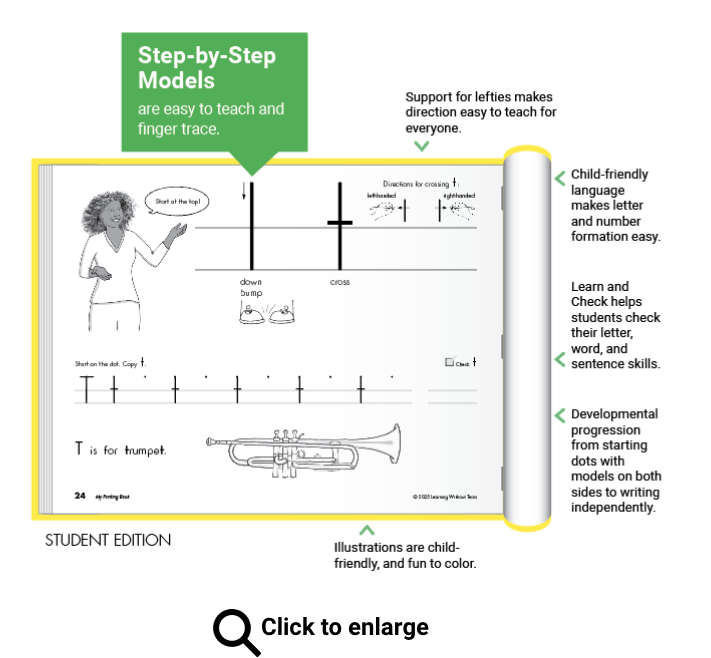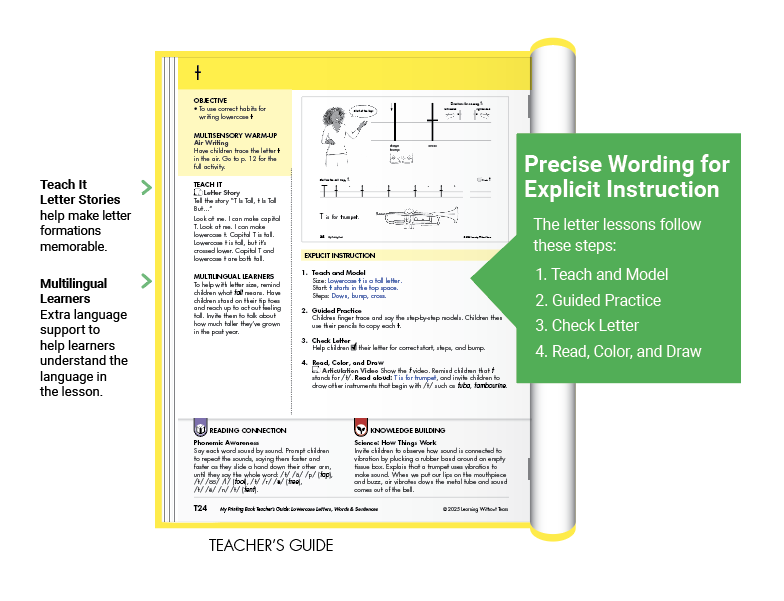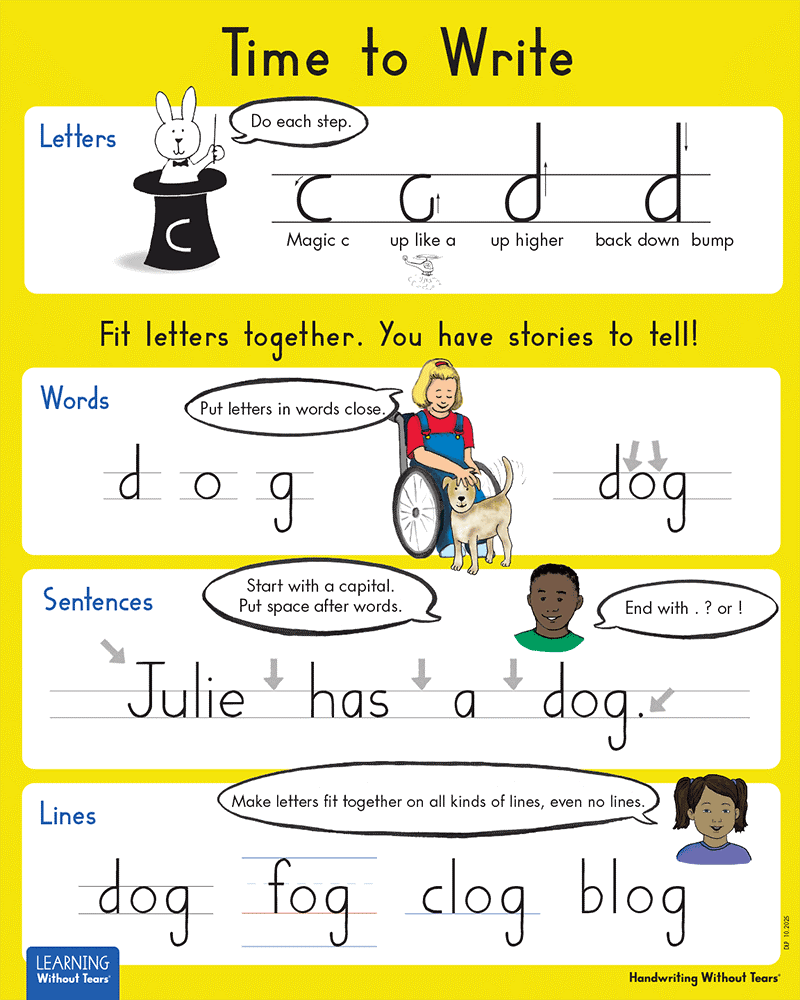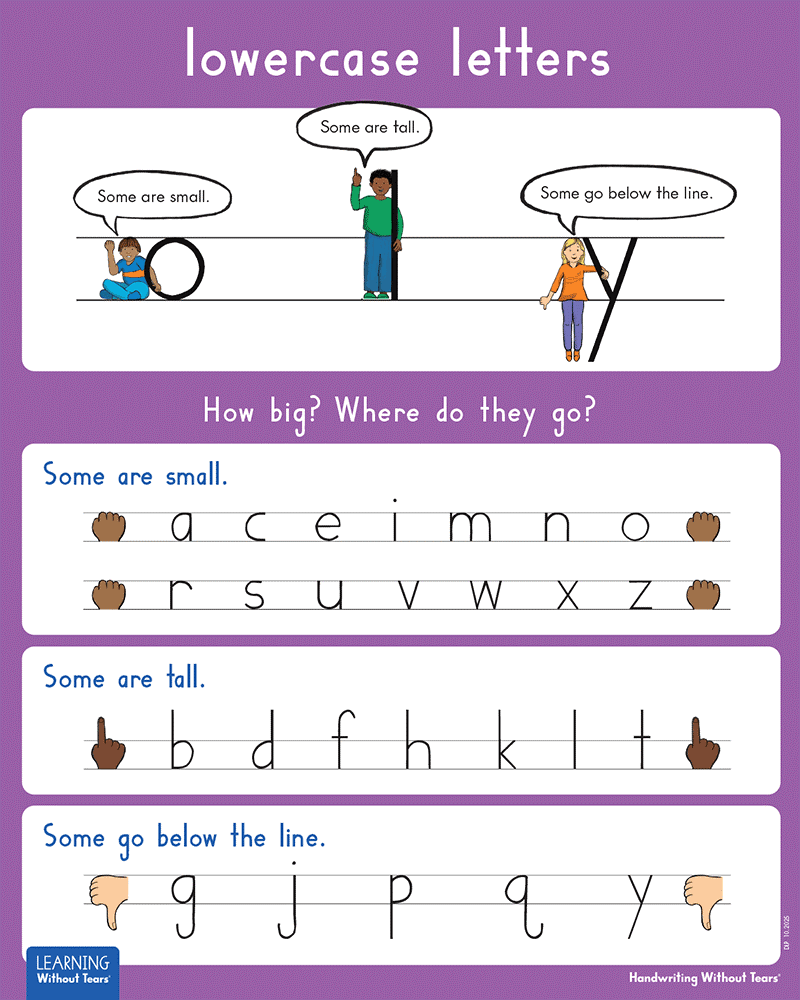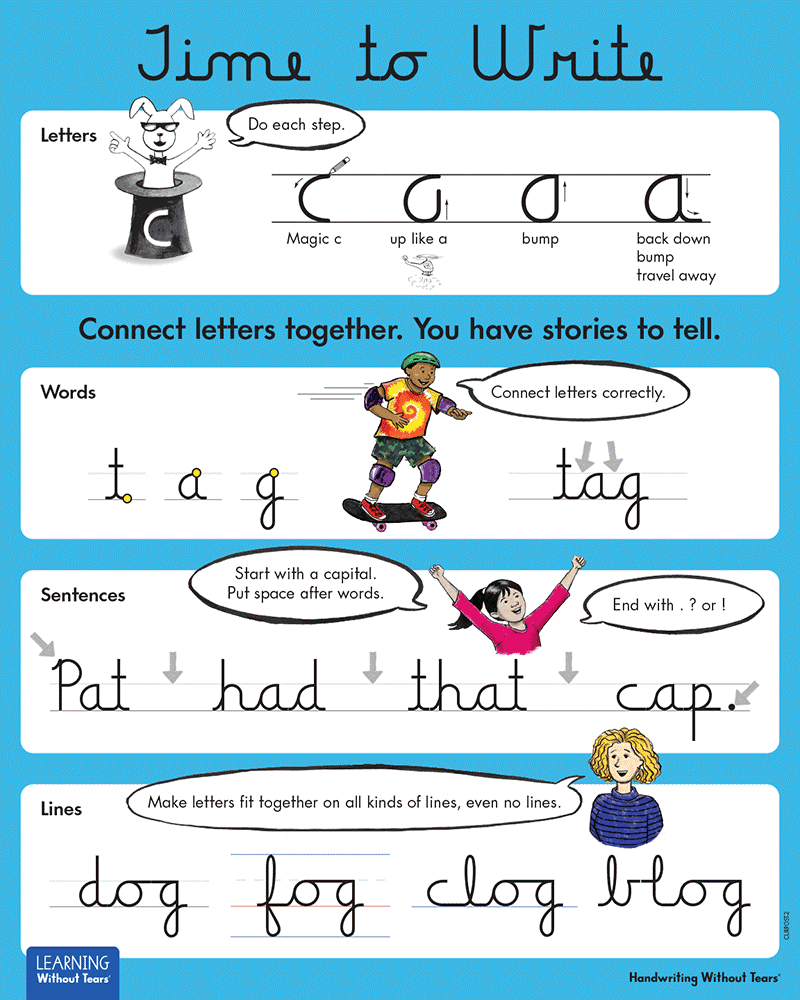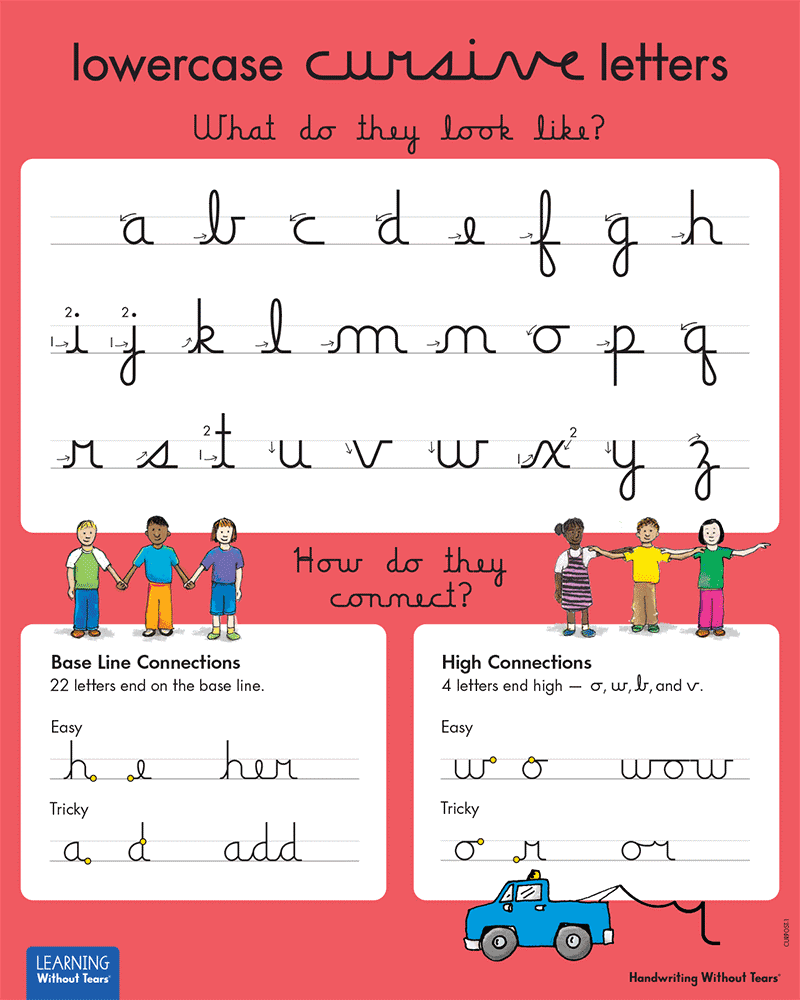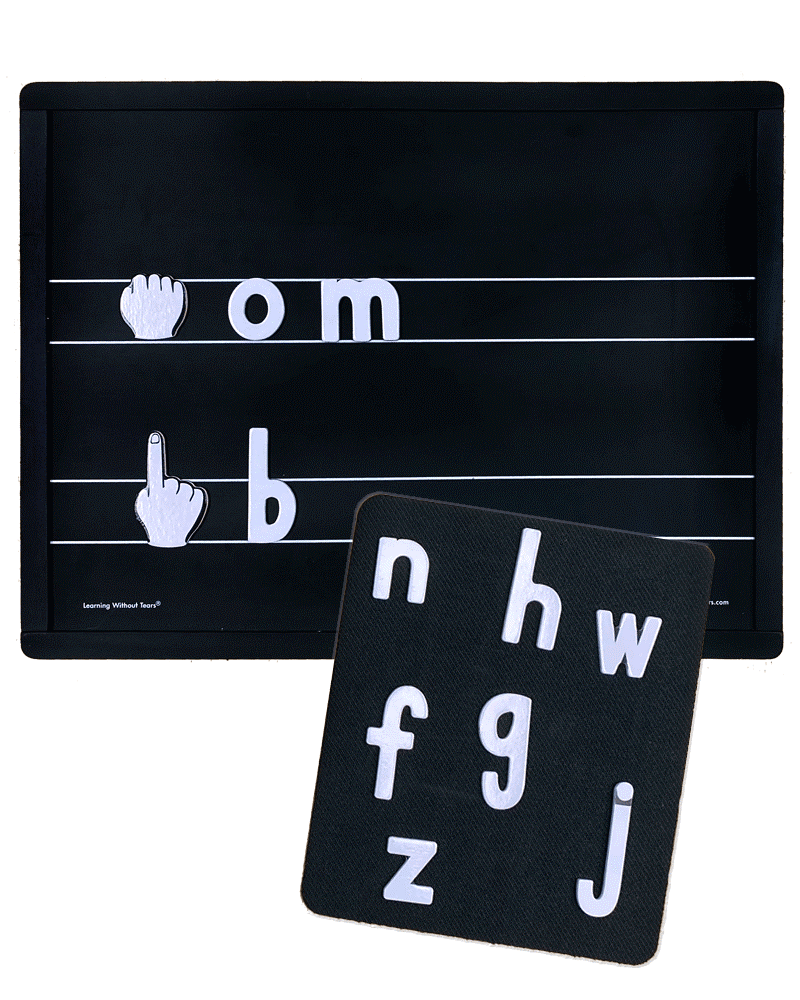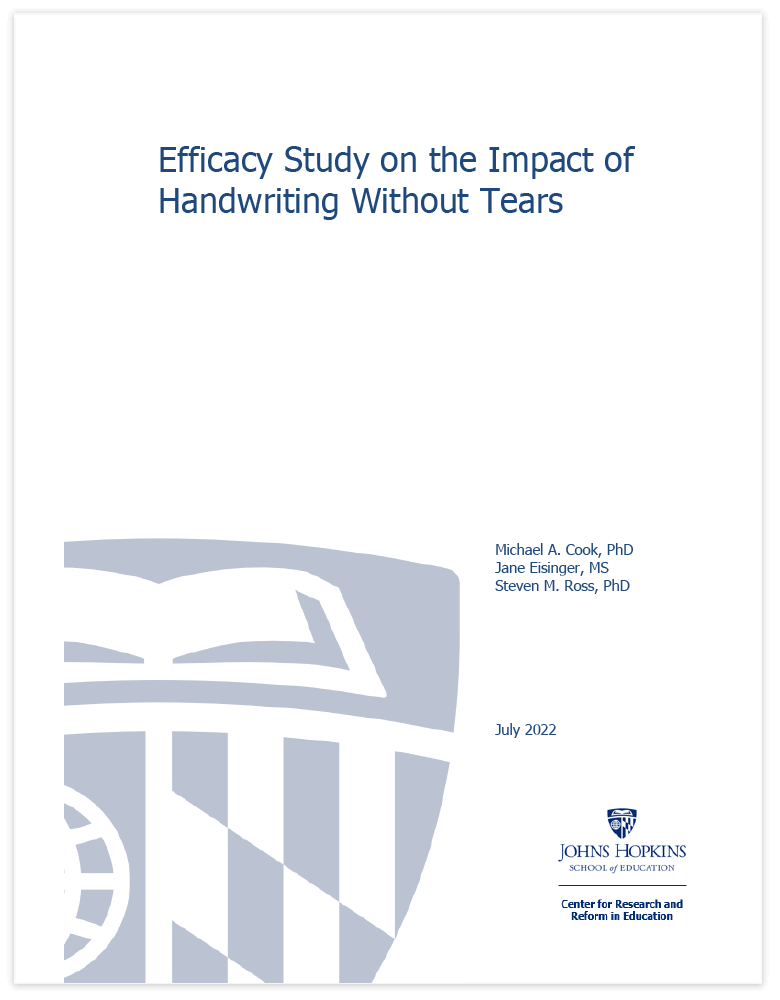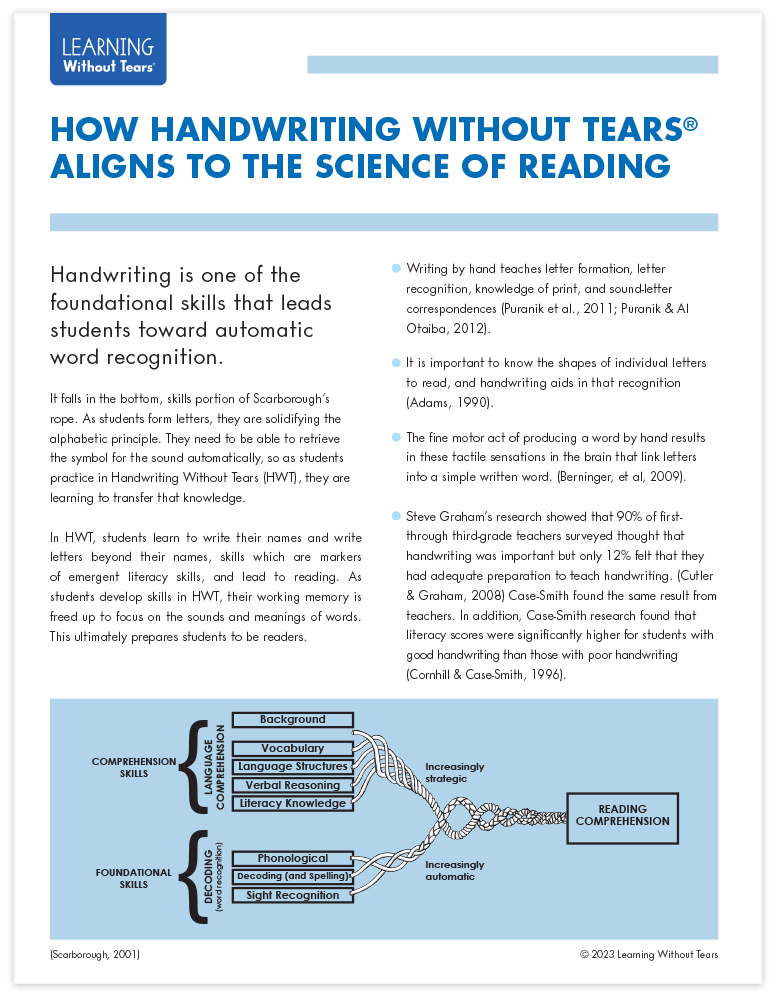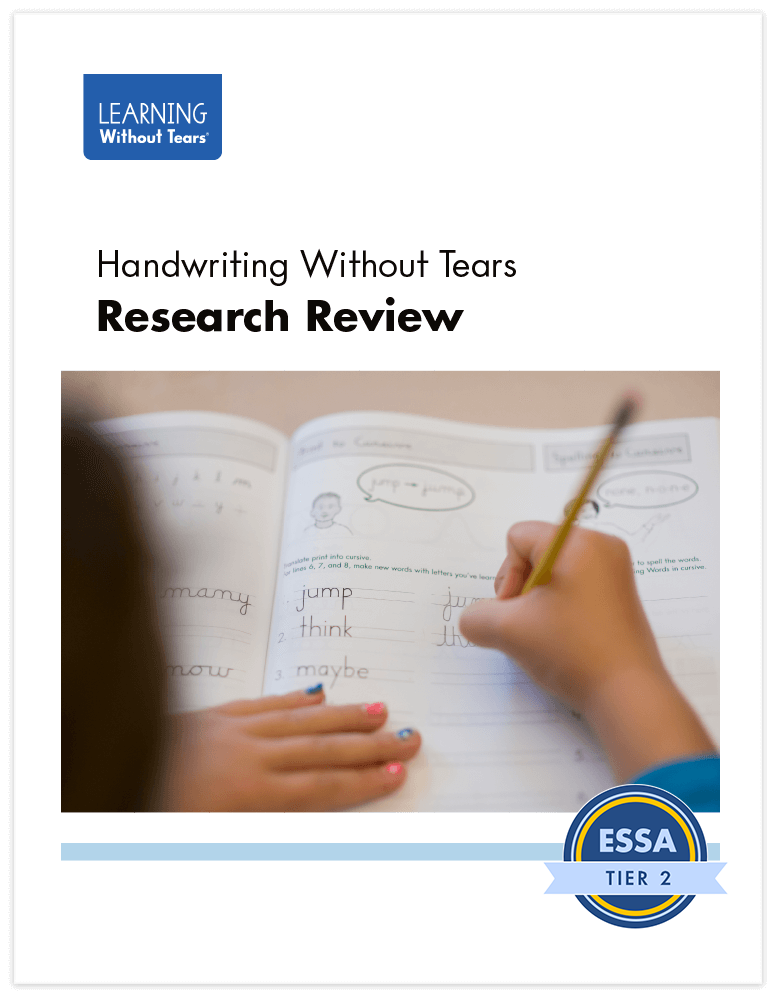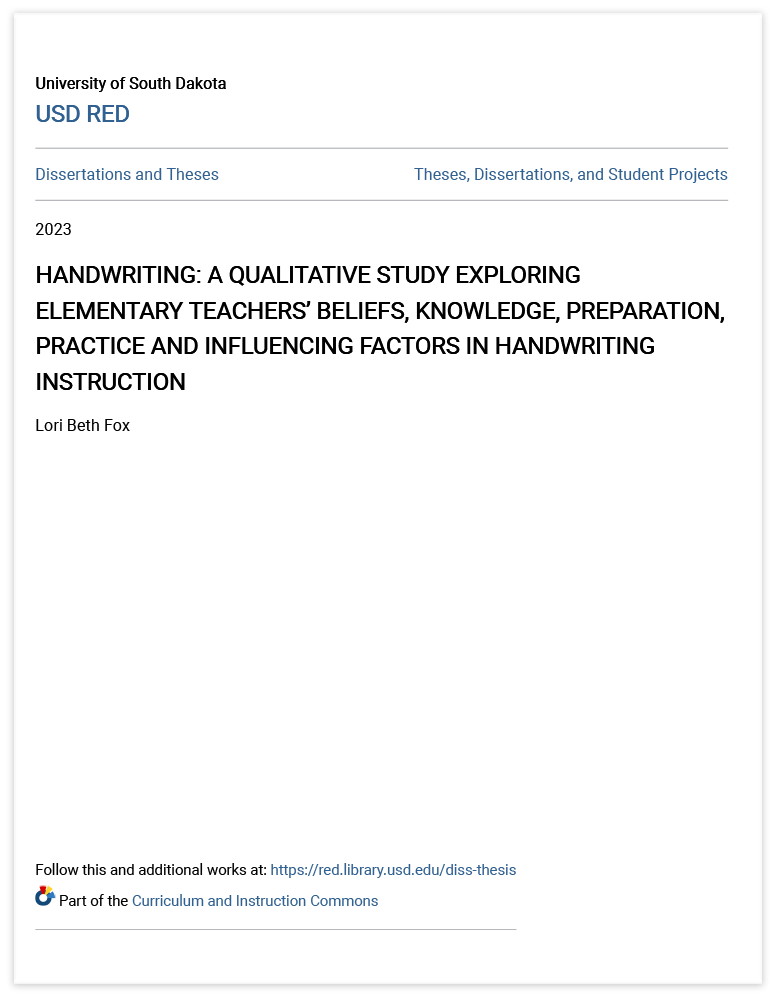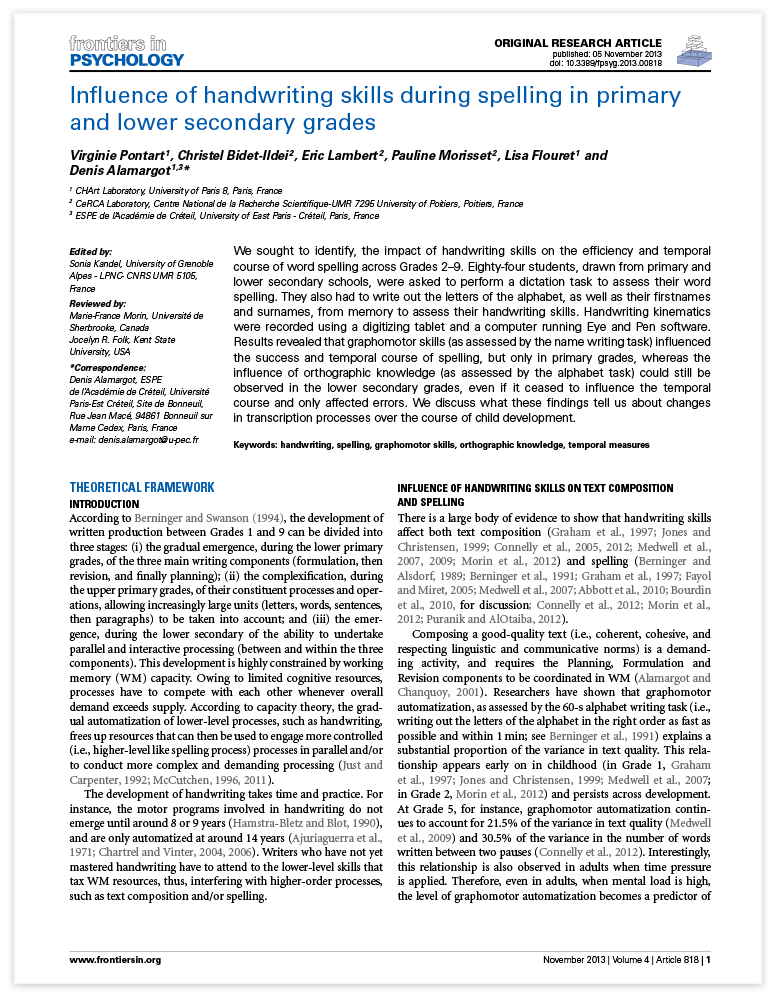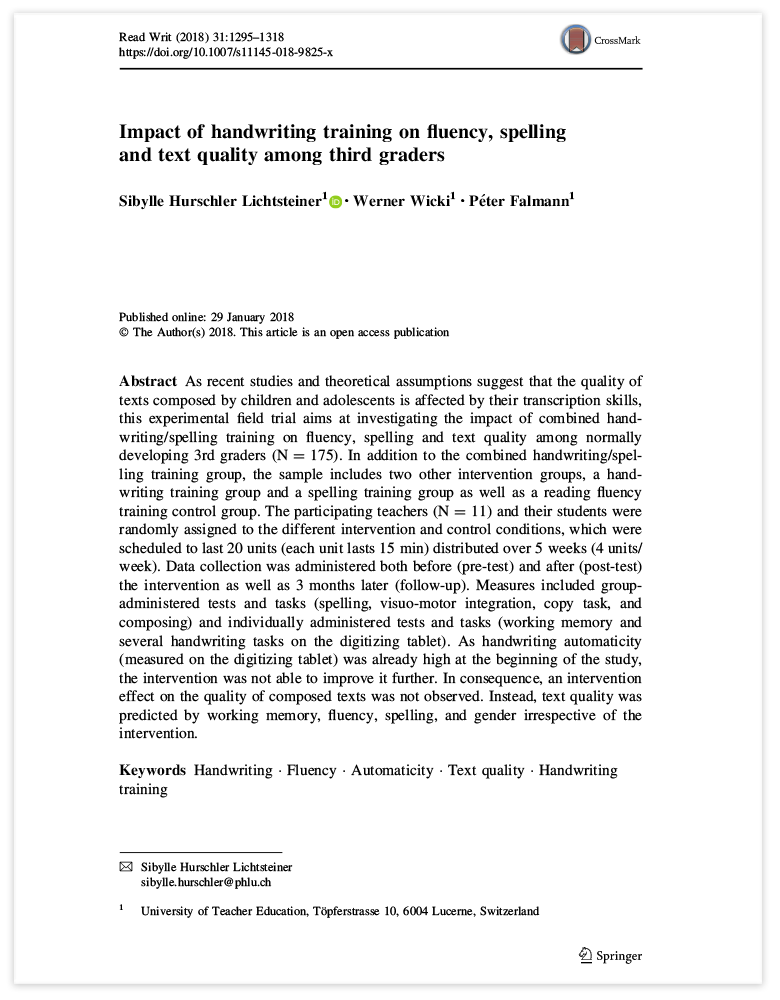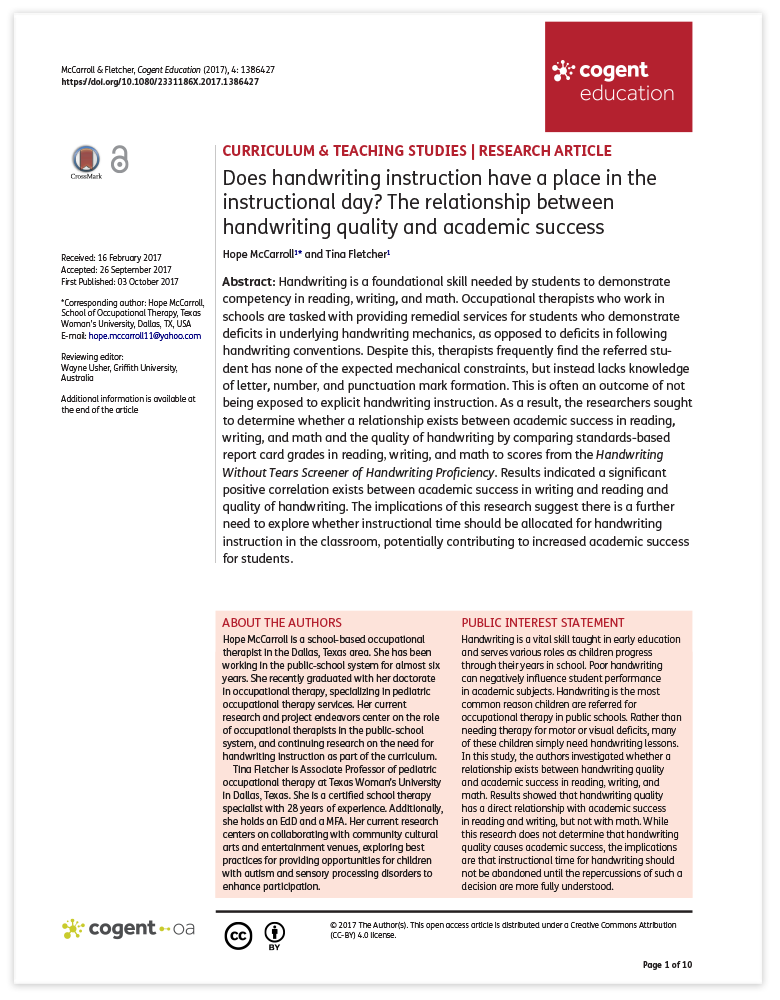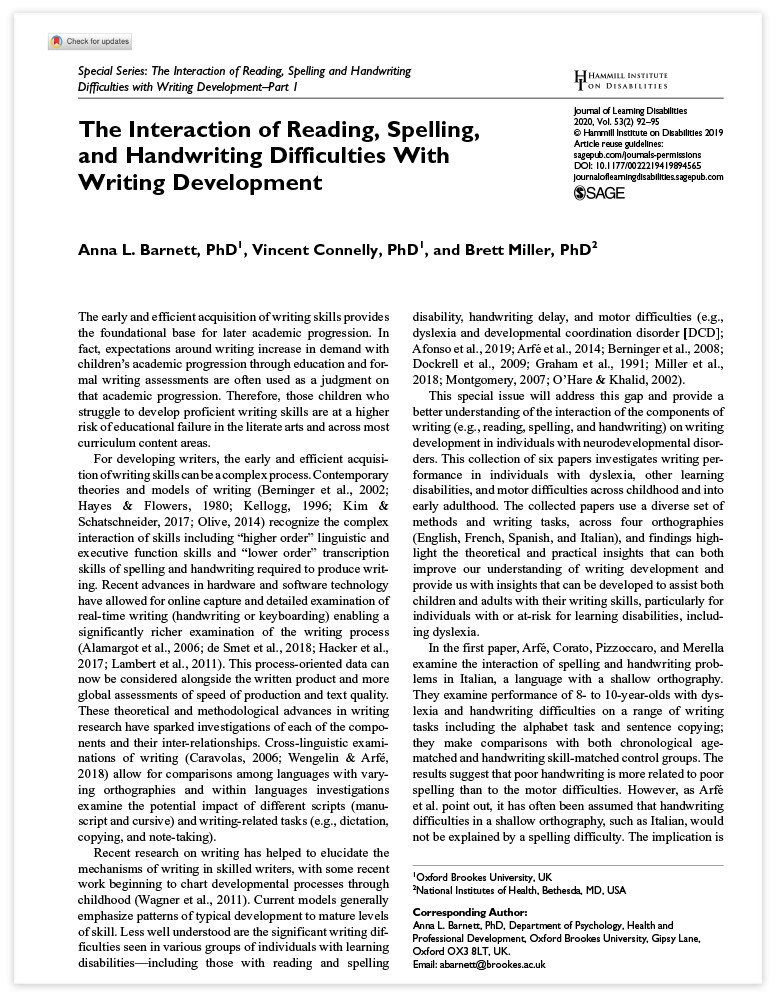Focused on Explicit Handwriting
With our clear, systematic instruction and child-friendly methods, we streamline the learning process, keeping students engaged from uppercase through to cursive letters.
- Explicit instruction combined with guided practice to promote handwriting automaticity.
- Developmentally appropriate sequence flows from Pre-K–6.
- Seamlessly integrates with literacy curricula for effective handwriting instruction.
- Hands-on tools build vocabulary and alphabet knowledge prior to writing.
- Multisensory activities engage all learners and develop fine motor skills.
- Research-backed curriculum with an intuitive and customizable design.
Handwriting is one of the foundational skills that leads students toward automatic word recognition.
It falls in the bottom skills portion of Scarborough’s rope. As students practice letter formation with Handwriting Without Tears, they reinforce the alphabetic principle. This practice ensures automatic recall of symbols for sounds, facilitating knowledge transfer as they progress.
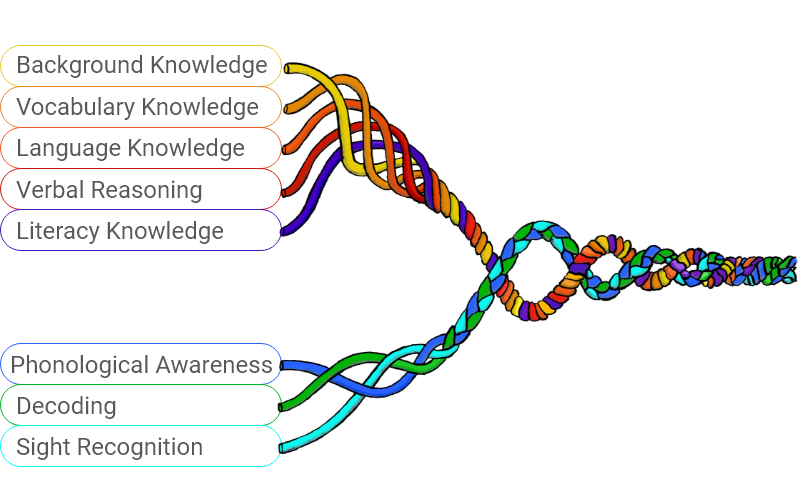
Modified from Scarborough, H.S. (2001).

The reason Learning Without Tears works well for us is that it is an integrated program that takes into consideration a child’s developmental needs and looks to meet the required state standards. The many different teaching methods incorporated into the curricula allow our teachers to meet each child’s individual needs and allow our students to succeed."
Holly Harrison Martinez, Director of Elementary Literacy
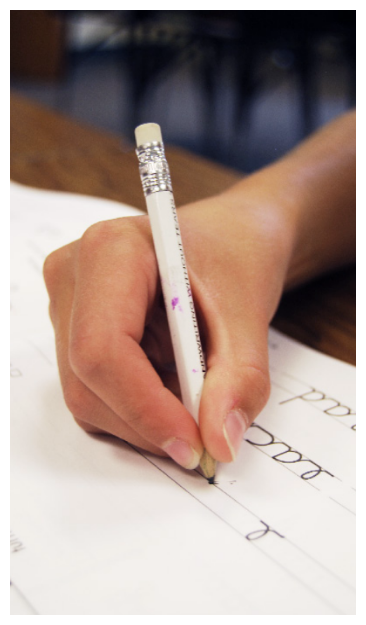
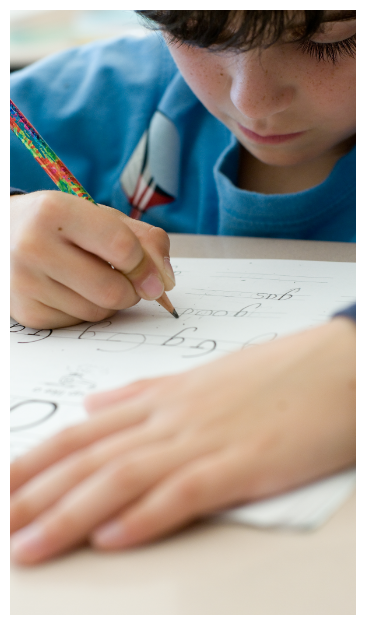
With 40 years of refinement, our Handwriting Without Tears program, designed by occupational therapists and enriched by teacher feedback, consistently meets educators' evolving needs and delivers proven results. This explicit, dedicated curriculum is developmentally appropriate and helps students build the motor and cognitive skills essential for success in school and beyond.
- Each page is thoughtfully designed to minimize cognitive load by offering clear instructions and design including large step-by-step models and intentional developmental progression.
- Features friendly, easy-to-remember language and illustrations that are intentionally simple.
- Children begin with size and how letters fit together. Then we place them on lines. Double lines serve as a pivotal element in our approach, aiding children in placing letters correctly and effectively.
- Designed to minimize teacher prep—everything a teacher needs is on the physical or digital lesson page.
- Lessons include suggested scripting for explicit handwriting instruction to make it easy for all teachers.
- Multisensory activities, differentiation strategies, ideas for multilingual learners, and progress monitoring are on the teaching page.
- Reading Connections, Writing Connections, and Knowledge Building extend the lessons to ensure literacy success.
Developmental Progression of Skills from Print to Cursive
Help your Pre-K to 6th-grade students seamlessly transition to cursive with our developmentally tailored approach.
Starting in second grade, our clean, vertical cursive style mirrors print, making the shift from print to cursive effortless. With consistent practice, your students will master letter connections from memory, making cursive easy to learn, read, and write.
Cursive Resources
We keep cursive simple and allow students to develop their own personal style as they become confident in their writing skills. Say goodbye to fancy, hard-to-write cursive and hello to a functional approach to achieving speed and fluency. Handwriting Without Tears offers multisensory lessons, student edition, teacher’s guides, and hands-on materials to implement effective and engaging cursive handwriting instruction for grades 2–6.
Spanish Student Edition
Handwriting Without Tears Spanish offers a version of the curriculum specifically designed to address the features of the Spanish language, including its alphabet, punctuation, and sentence/writing conventions.
Like the English version, the Spanish program is designed to be systematic and easy to follow. It uses a multi-sensory approach, combining visual, tactile, and auditory strategies to help students develop correct letter formation and fine motor skills that allow students to succeed.
Teacher's Guides
Handwriting Without Tears Spanish offers a version of the curriculum specifically designed to address the features of the Spanish language, including its alphabet, punctuation, and sentence/writing conventions.
Like the English version, the Spanish program is designed to be systematic and easy to follow. It uses a multi-sensory approach, combining visual, tactile, and auditory strategies to help students develop correct letter formation and fine motor skills that allow students to succeed.
Designed for maximum flexibility, Handwriting Without Tears effortlessly integrates into your literacy block. The program uses explicit teaching strategies that align with established learning methods. When paired with your literacy curriculum it boosts handwriting and cognitive development. Our straightforward approach ensures easy adoption and effective results for students' academic and life success.
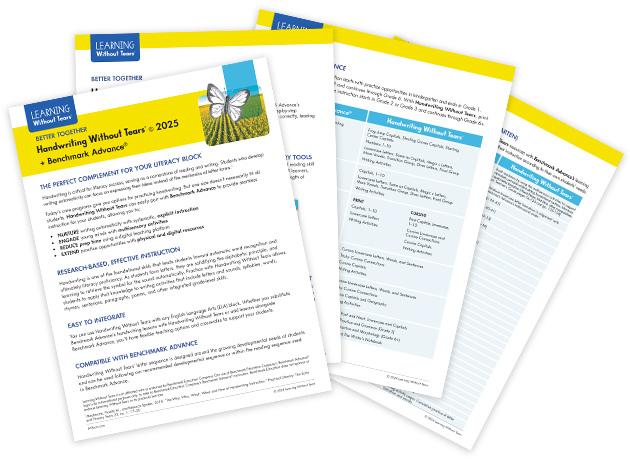
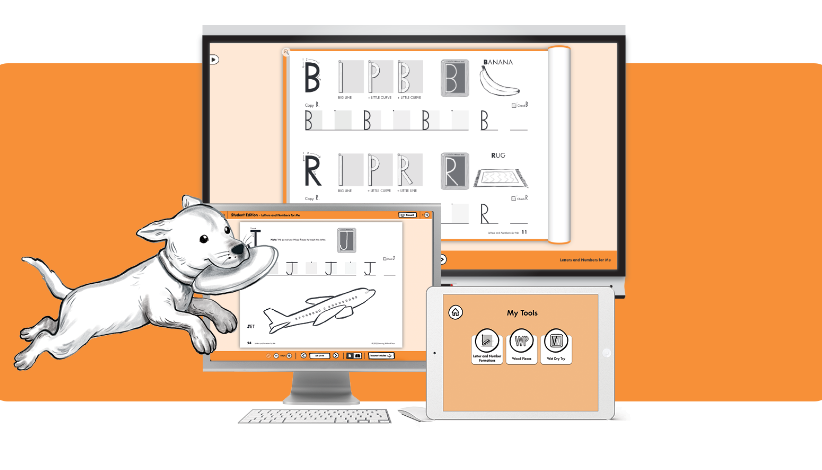
The Interactive Digital Teaching Tool makes it simple for teachers to launch lessons without prep time. Teachers use the expanded explicit language for teaching, found both in the digital and print Teacher’s Guides. Adapt the lesson sequence or components to suit your classroom needs.
Our program incorporates hands-on materials and multisensory activities that help students develop fine and gross motor skills for handwriting. Each lesson includes a unique activity that is relevant to the particular lesson and pairs with other classroom materials.
- Multisensory lessons, activities, and word choices align with grade-level ELA teaching.
- Teacher’s Guides include multisensory activities, differentiation strategies, ideas for multilingual learners, and progress monitoring.
- Includes resources like the Letters to Words Blackboard Set that pairs with learnings in your ELA curriculum.
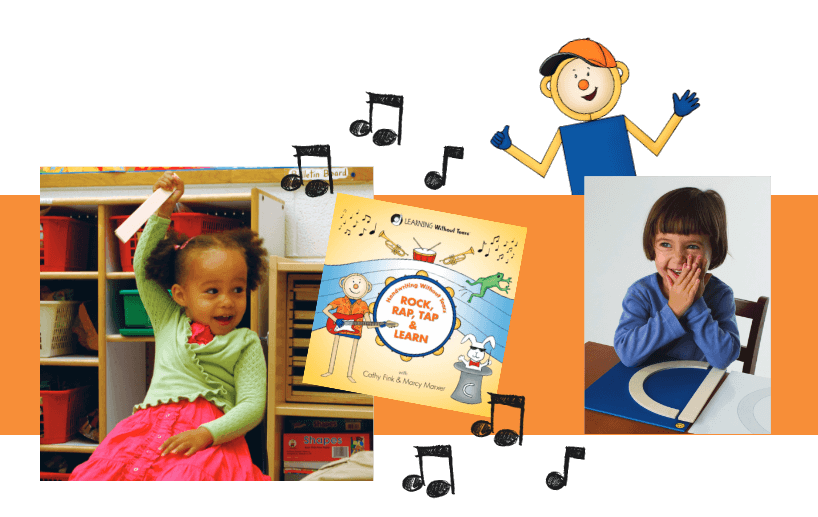
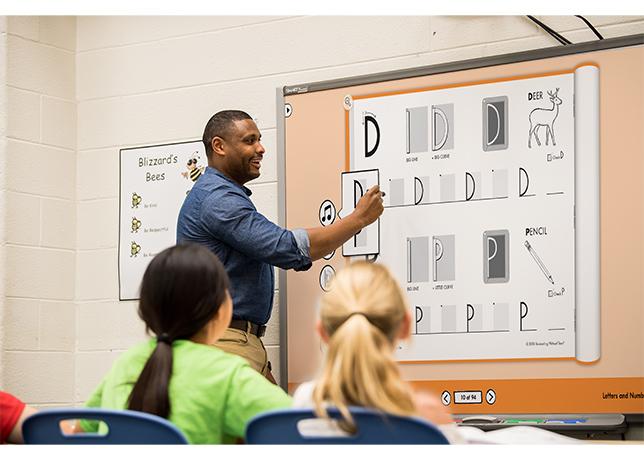
Teaching handwriting significantly impacts brain development, especially in areas related to literacy (Berninger 2012, James 2012).
Today’s rigorous educational standards require strong reading, writing, and comprehension skills. Handwriting, though sometimes underestimated, is essential for meeting these standards, enhancing letter recognition, fine motor skills, and writing fluency.
Integrating handwriting into your ELA curriculum supports these standards and builds a strong literacy foundation. Structured lessons improve writing abilities and overall literacy skills, ensuring students meet and exceed benchmarks. This approach aligns with current standards, meets ESSA’s Tier 2 evidence criteria, and promotes long-term academic success.`
Handwriting Without Tears leverages multimodal components and strategies to create a dynamic and effective learning environment. By incorporating tactile, visual, auditory, and kinesthetic activities, our program ensures that every child can engage in a way that suits their learning style. This comprehensive approach not only enriches the handwriting experience but also reinforces broader literacy skills, highlighting the crucial role of multimodal learning in educational success.
Materials and activities are selected to enhance the lessons and develop motor skills.
Build Mat Man™ with Wood Pieces and Mat
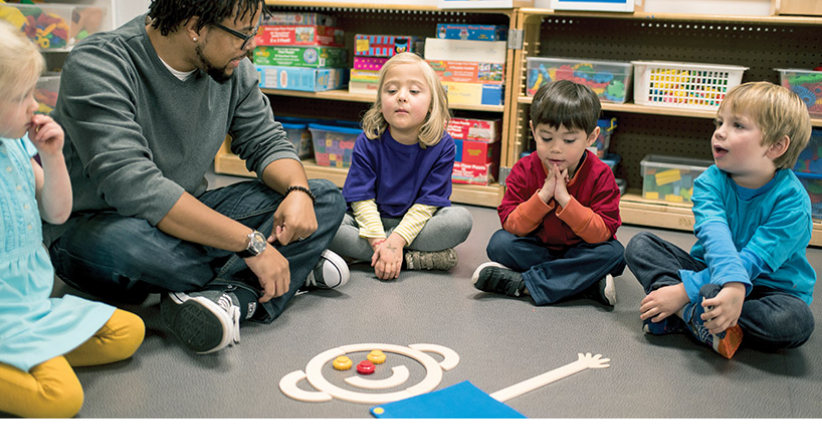
Demonstrate Using Interactive Digital Teaching Tool
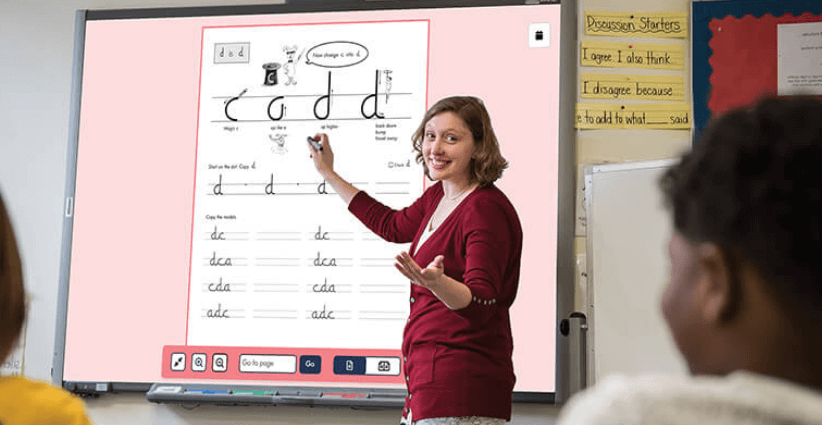
Teach Phonics with the Letters to Words Blackboard Set
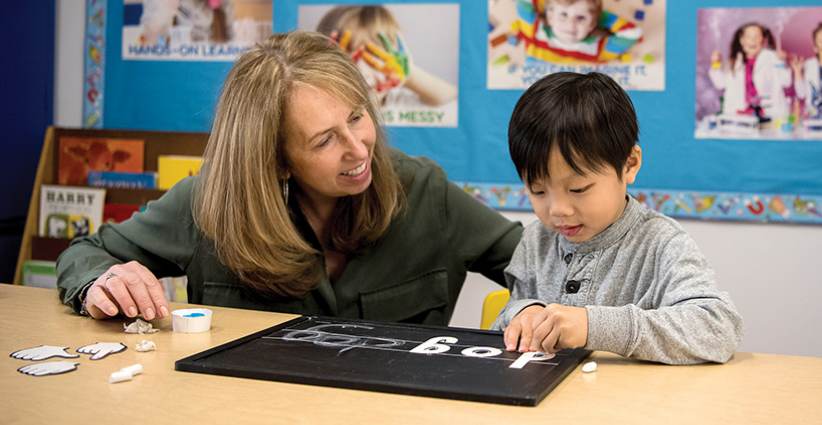
Practice Wet-Dry-Try on the Slate
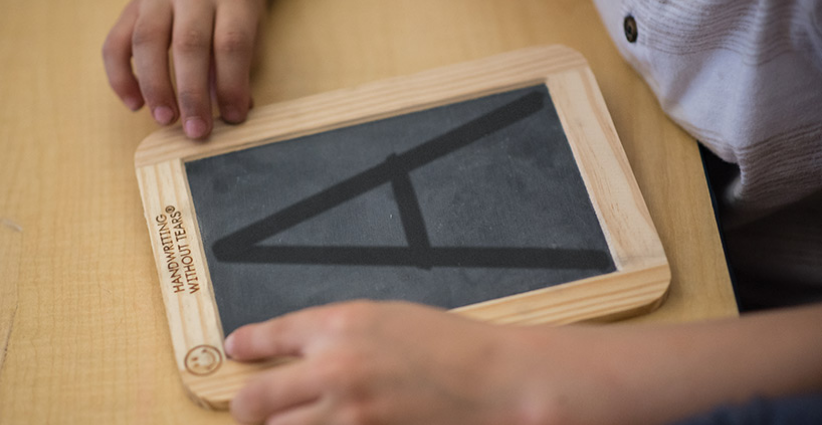
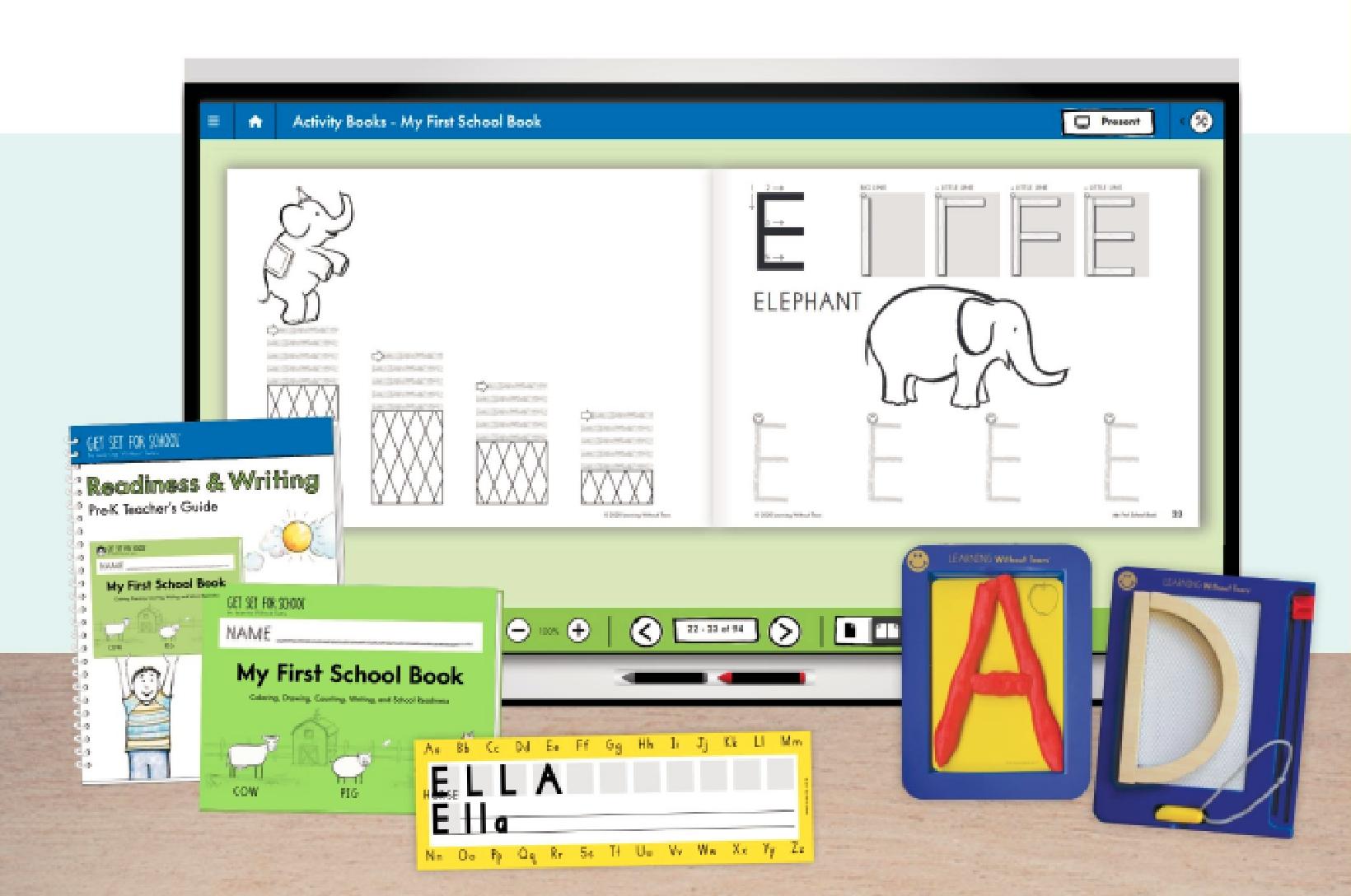
Our developmentally appropriate Pre-K program, Readiness & Writing, builds emergent writing skills, giving students a strong early literacy foundation and preparing them for the rigors of elementary school and the years ahead.
Students will learn social-emotional and readiness skills, develop fine motor skills, learn to hold a crayon, and explore with manipulatives like Wood Pieces.
In your classroom, you will:
- Use music, hands-on manipulatives, and technology to help children develop the emergent writing skills needed for kindergarten readiness.
- Have strategies for teaching grip, alphabet knowledge, and coloring skills in preparation for children to write letters, numbers, and their names.
- Get purposefully designed materials to help children progress from coloring, tracing letters and numbers to writing their name.
Educators today need flexible instruction that meets the needs of each student. Our integrated print and digital handwriting solution combines simple print editions with powerful digital tools that support your classroom instruction. Interactive Digital Teaching Tool (IDTT) provides:
- Digital student and teacher editions.
- A library of animations, music, and videos that connect letters to our world.
- An option to use the HWT dedicated developmental teaching order or adapt to your own.
- Access micro-learning content relevant to each lesson.
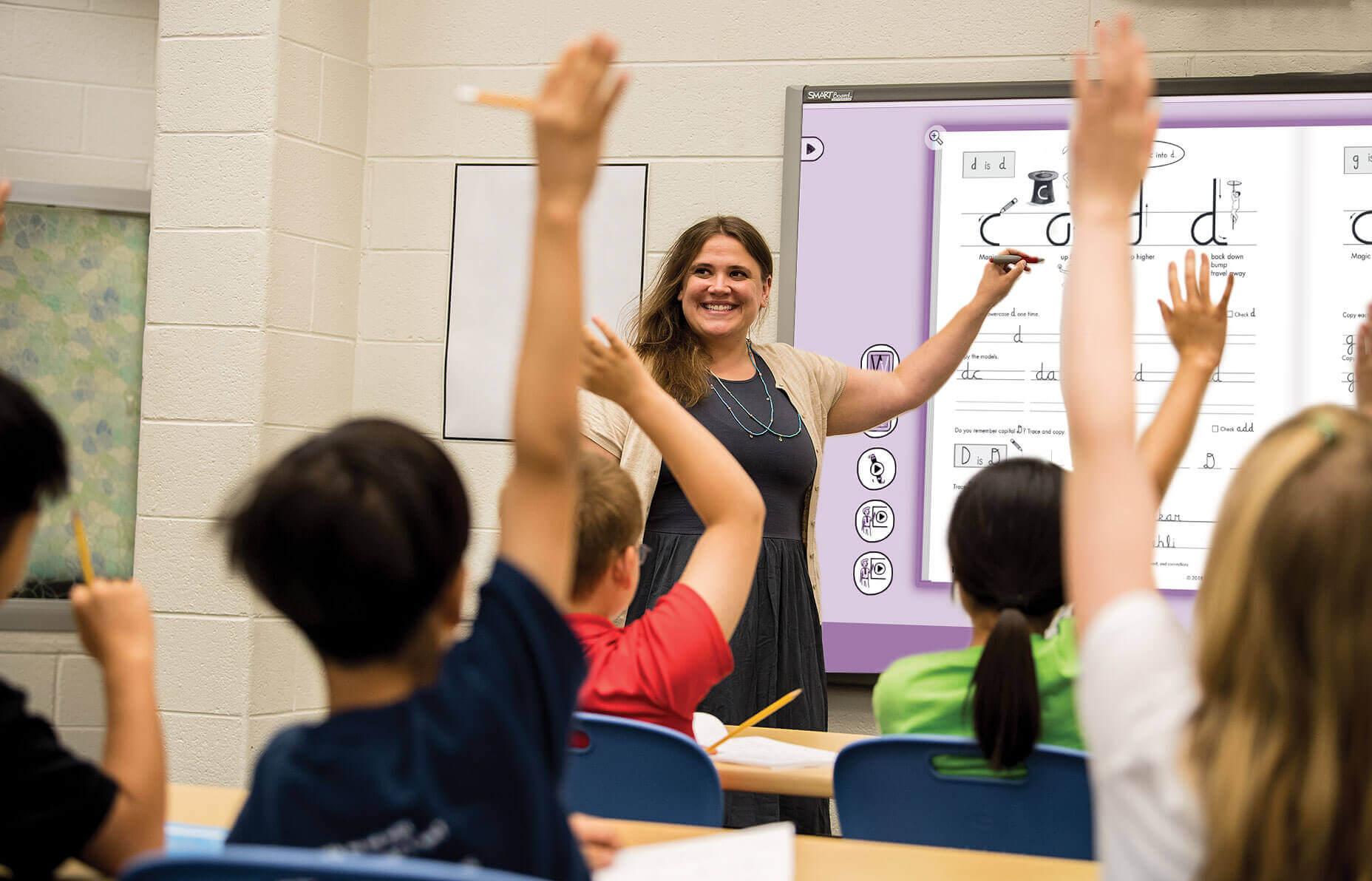
Engage your students with our Interactive Digital Teaching Tool to minimize lesson prep and deliver dynamic lessons.
Digital Student Experience

Assign work-at-home or school for instruction, remediation, or as a school-to-home connection. Students can submit a digital copy of their work for teacher review without collecting student editions.
Formation Tools
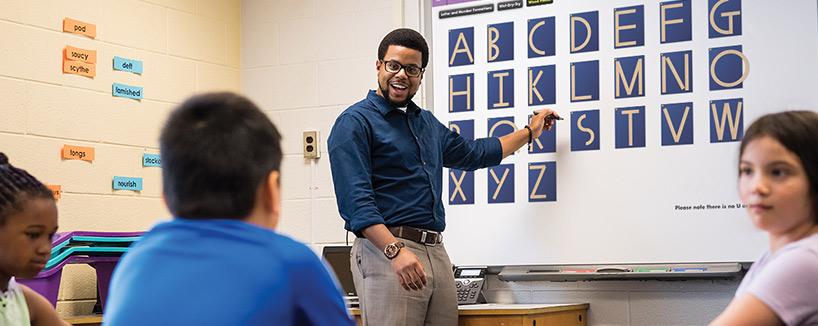
Use our animated models. Wet-Dry-Try, Wood Pieces, and Letter and Number Formations. Children follow along by finger-tracing the steps in the student edition. Available in English and Spanish, print and cursive.
A+ Worksheet Maker
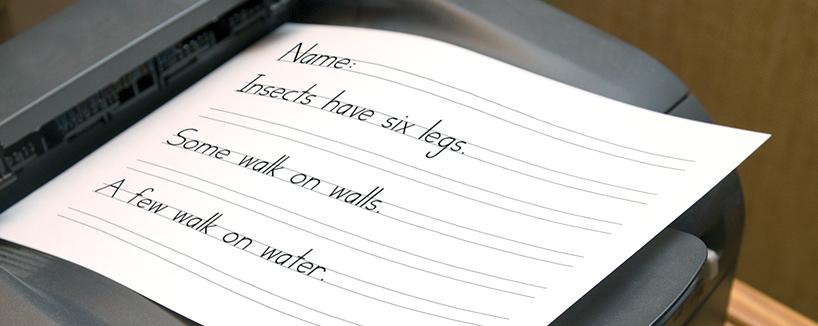
Integrate the unique Handwriting Without Tears font and double lines into other classroom activities. Options include sentence writing, spelling, vocabulary, and graphic organizers.
Screener of Handwriting Proficiency
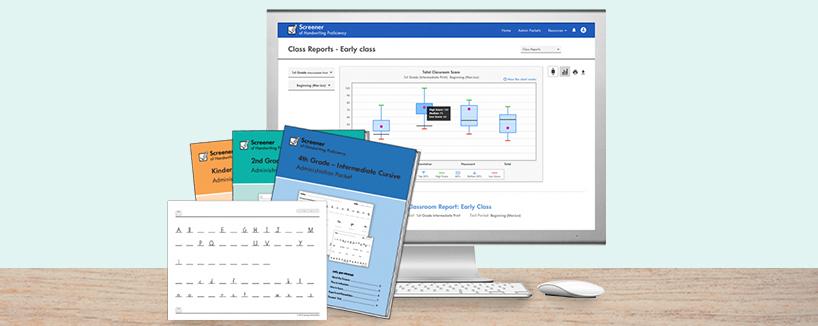
The screener is an easy-to-administer, whole-class assessment that helps identify students who are struggling with handwriting. The screener is universal and can be used independently or as part of an RTI framework.
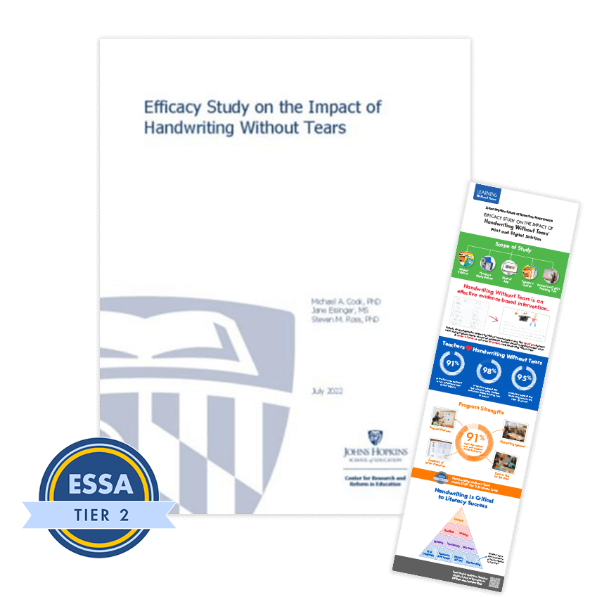
Handwriting Without Tears isn’t just practice—it’s proven. The Center for Research and Reform in Education at JHU conducted a recent study that showed Handwriting Without Tears® had a significant positive impact on student handwriting, as measured by the Screener of Handwriting Proficiency. Here’s why educators love it:
- Easy-to-use resources that teachers trust
- Engaging lessons that keep students focused
- Quick, efficient sessions fit any schedule
- Digital tools that enhance teaching
- Simple, effective letter formation for lasting skills
Discover how effective handwriting instruction can lay the foundation for early literacy success.
How It Aligns with the Science of Reading
Integrating Handwriting with Foundational Literacy Skills
Before and After: Real Student Results
See the magic of transformation with Handwriting Without Tears! Watch as wobbly letters and scribbles turn into clean, confident handwriting. Our program doesn’t just improve penmanship—it boosts students’ self-assurance and sets them up for lifelong learning success.
Explore a range of research-backed resources that go beyond Handwriting Without Tears. These materials offer localized insights and specific studies on the benefits of using evidence-based programs in education. From visual aids to instructional tools, each resource supports effective teaching practices and helps students adapt to various classroom styles with confidence.
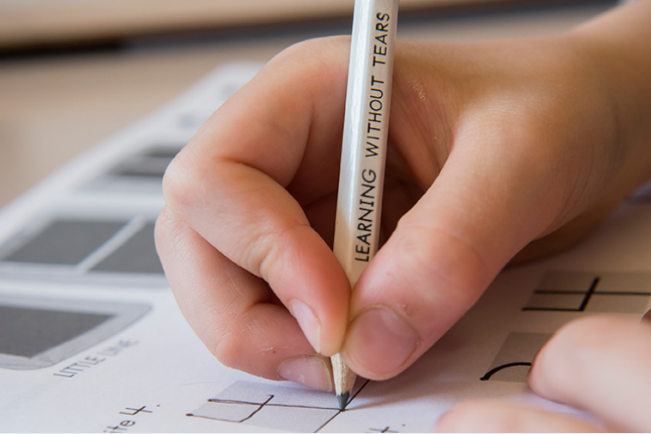
Every child’s literacy journey starts with the right tools and strategies. At Learning Without Tears, our programs are developed through rigorous research to provide proven, practical solutions that support educators in building strong foundational skills. From early readiness to advanced literacy, our resources empower students to thrive.
